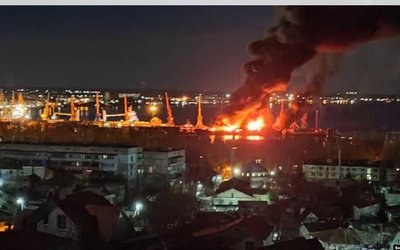
We cannot direct the wind, but we can adjust the sails. When we cannot control what’s happening, we need to challenge ourselves to control the way we respond to what’s happening. That’s where our power is, and this is exactly where we are in terms of COVID-19 as we are confronting the uncertainty.
Despite rumors and believes, the coronavirus is still here and growing during the summer. Studies have shown that breathing or talking in the coronavirus is the most common ways the coronavirus spreads.It’s now clear that a sunny day or warmer weather does not stop COVID-19.
We don’t know when the vaccine will be available. There is worrying possibility that this coronavirus might never go away like influenza. We need a more unified approach to deal with this protracted crisis, but the political polarization and frictions within and between some of the countries are less helpful to fight against this pandemic.
Many governments around the world have implemented lockdowns and curfews banning ontravel, mobility, businesses and services.But the spread has not stopped.With the uncertain future, we should learn to live with COVID-19 by taking informed step by step measures to improve health and wellbeing of the people as well as to improve the economy.
Outdoor activities can be started with social distancing and good hygiene practices (such as mask, gloves, handwashing and the elbow when coughing), and indoor activities can be started with minimum number of people, social distancing and good hygiene practices for limited time period.
In a similar way, gradual and partial re-opening of the office is a possibility havingstaggered shiftswith minimum number of people. Disinfection of the building is a must with sufficient ventilation in the rooms. Staff shouldnot come to the office if they don’t feel well. Staff should also be allowed that any work that can be done from home should be done from homeduring the partial reopening.
Restoring public transportation might take some time as it has a greater risk as it is difficult to operate with limited capacity particularly in developing countries. However, restaurants can be gradually reopened for takeaway facilities with social distancing and good hygiene practices.
Schools should be only reopened when it’s safe for children and there must be a decline in the rate of new infection in the locality. There must be a thoughtful plan and preparation for each school based on risk assessment.Schools should continue to provide distance learning support to students and look every possibility for gradual reopening with a mix of distance learning and school-based activities.
The government should take aggressive measures to contain the spread of COVID-19 by detecting, testing, isolating and treating cases.The government should provide evidenced based risk assessment of different geographic locations and advise the people and organizations to gradually resume services,as the transmission is not homogenous throughout the country.
Let us focus on what is under our control. We should reinforcephysical and mental health, and take necessary preventive measures while we start living with COVID-19. I believe that we can always find ways to maintain social connections and to provide care and support for the needy people.This is a duty of every human being, and a mandate of humanitarian organization.
Dr. Prabin Manandhar is an expert of international development. Currently, he is working in Iraq as Country Representative of The Lutheran World Federation. He is the Former Chair of the Association of International NGOs in Nepal (AIN). He is also a visiting faculty at the Kathmandu University. He can be reached at prabin.manandhar11@gmail.com
- Reclaiming Nepal’s Budget From Hidden Hands
- Jun 07, 2025
- Redefining Regional Cooperation: How SAARC can evolve like ASEAN
- May 11, 2025
- From Nepal to Myanmar: Navigating Earthquake Response Lessons
- Apr 13, 2025
- World Humanitarian Day 2024: Committing to Peace and Accountability
- Aug 19, 2024
- Nepal Investment Summit: Unlocking Economic Potentials For Growth And Development
- Apr 28, 2024
















